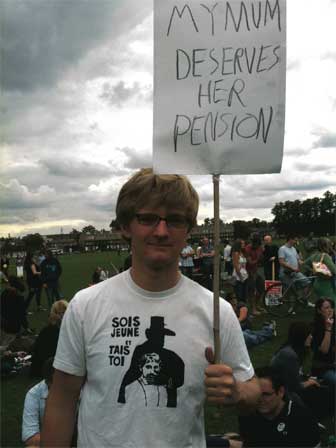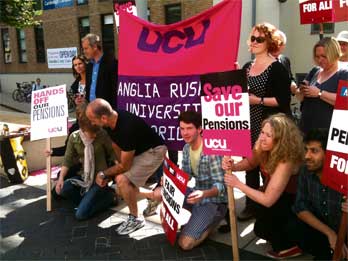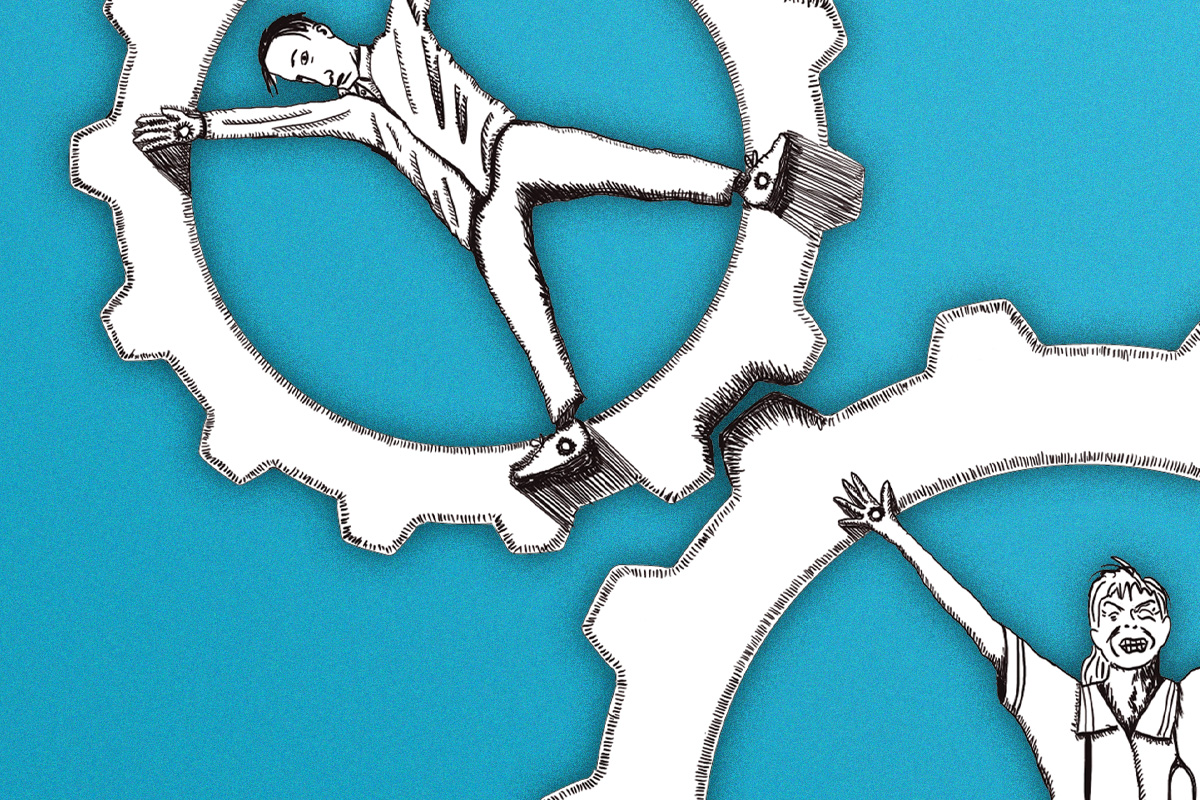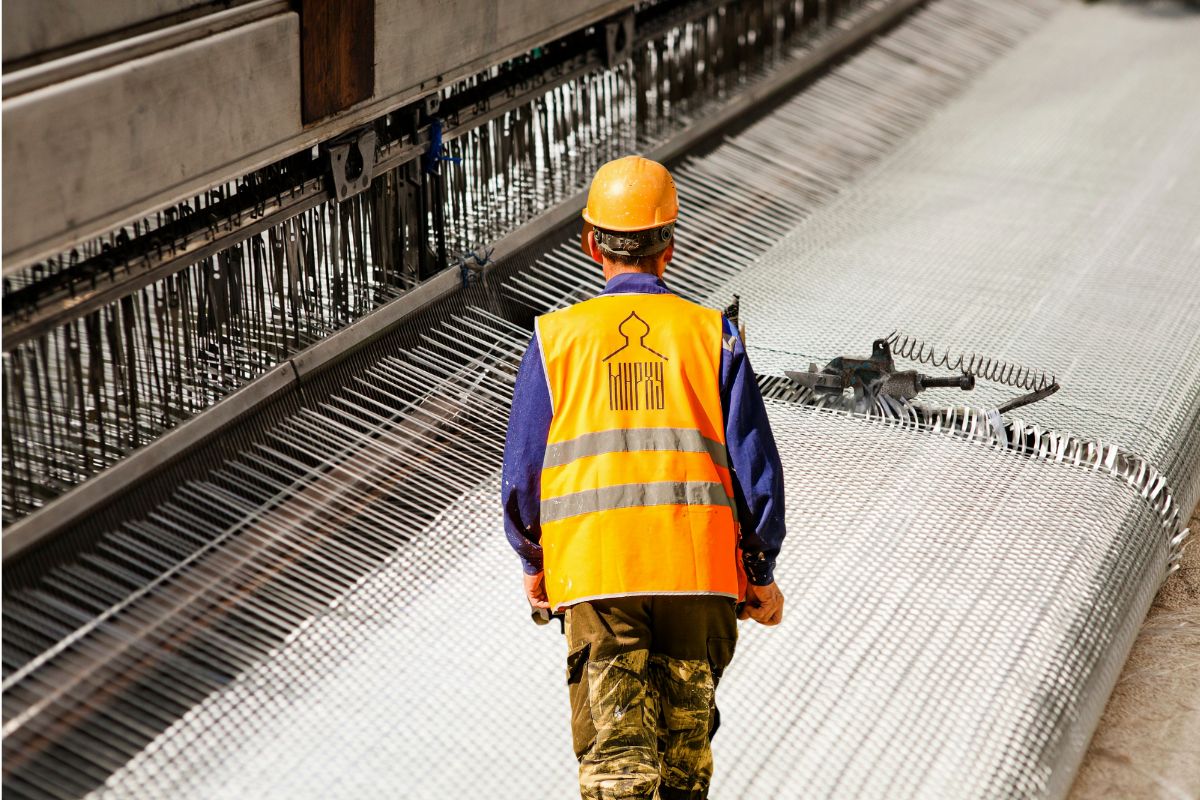Cambridge saw all the four striking unions out in the city,
with PCS members on strike at the job centre and the local HMRC offices, the
UCU out at Anglia Ruskin University and the Cambridge Regional College, and NUT
and ATL members shutting down a number of schools in the area. Armed with our
solidarity chocolate, we visited a number of picket lines to chat to workers
and offer our support.
Cambridge saw all the four striking unions out in the city,
with PCS members on strike at the job centre and the local HMRC offices, the
UCU out at Anglia Ruskin University and the Cambridge Regional College, and NUT
and ATL members shutting down a number of schools in the area. Armed with our
solidarity chocolate, we visited a number of picket lines to chat to workers
and offer our support.
According to those taking action, public support for the
strikes seemed to be good, and nobody was buying into the government’s attempts
to divide public sector workers against private sector workers and the
ubiquitous “hard working taxpayer”. Doug Kendall, assistant branch secretary
for the Cambridgeshire branch of the Department of Work and Pensions, told us
that, “support is greater than it has been previously in disputes about pay,
conditions, and jobs…Society has been divided quite deliberately by the
government, which is setting private sector workers against public sector
workers; setting the employed against the unemployed; setting young people
against old. It’s about division, isolating and marginalising organisations and
individuals…The idea that the public sector should be deprived of decent
pensions because the private sector doesn’t have them is a ridiculous argument.
This government should get in touch with their mates in the financial sector
and provide better pensions for everyone.”
The wider support for the strikes could clearly be seen on
the picket lines. As we stood with lecturers on the picket line at Anglia
Ruskin University, taxi drivers and white van men – the sort of small business
owners who historically have been more drawn towards the camp of reaction –
were tooting their horns and showing their support for the strikers. With the
cuts to public services now biting and inflation eating away at real wages, it
is not just public sector workers who are angry with the government. Doug
Kendall added that, “the government view – that these [pensions] are not
affordable; that “we’re all in this together”; that we all need to share the
pain – is completely see-through. Clearly we’re not all in the same boat. I’m
sure that we’ll see more public sector workers taking action, and more public
support for these actions, as the year progresses.”
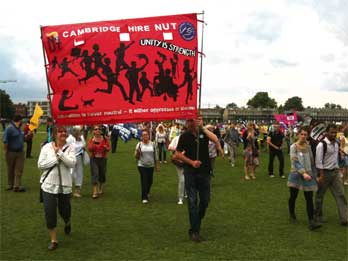 The climax of the day was the midday rally on Parker’s Piece
The climax of the day was the midday rally on Parker’s Piece
and the march around town. As noon approached, the pickets started moving and
feeder marches set off towards the central location. Soon after midday the park
was packed with striking teachers, lecturers, and civil servants, as well as
students and families that had come to show their support. It was the biggest
trade union demonstration in years, and even the police (who notoriously underestimate
the size of protests) quoting a figure of 1500 people.
This was evident from
the size of the march, which processed around town and created a formidable
presence. Indeed, as was commented on by more than one speaker during the
rally, if four unions can get this many people out and create this much of a
presence, imagine what could be achieved with the full force of the labour
movement. As one member of PCS put it, “We need a general strike – it’s the
only way we can bring this government down. We don’t want them or their
“reforms”. We’ve done it before, with the Poll Tax and Thatcher, and we can do
it again. We need to follow the example of Greek workers… I’m not paying for
this economic crisis, and neither are my members.”
We talked to Carol Gerrard,
PCS Cambridge branch president and General Executive Committee member for
Revenue and Customs group.
Socialist Appeal: You had a
strike at these offices a few weeks ago in early June; what was that over?
Carol Gerrard: On the 14th
February, HMRC introduced a new sickness absence policy, reducing the current
terms of 5 incidents or 20 days to 3 incidents and 5 days before they would
take disciplinary action. The DWP (Department for Work and Pensions) took
similar measures and managed to get rid of 10,000 people alone, so it’s quite
clearly just a tool to sack us, especially considering they want to get rid of
another 13,000 of us on top of the 30,000 they’ve already got rid of. Not only
that, but the new policy reduces compensation payments for those who have long
term illnesses. As a result of all this, effectively you could have one dose of
the flu and be out of the job within 3 months.
SA: What are the big issues
that you’re taking action over today?
CG: Today we’re striking over
pensions (officially), but it’s also about jobs and services. The government,
as part of the Comprehensive Spending Review in 2010, said they wanted to
reduce the civil service by over 100,000. This is on top of the 78,000 jobs
that were lost under New Labour “reforms”. We already reformed our pensions
back in 2006, and we have already moved to career averaging because PCS
admitted that there were equality issues, so this proposal by the coalition
government is not something we’re willing to negotiate on, because as far as
we’re concerned, we’ve already resolved that. What we don’t like is that this
is just a blatant attack on our terms and conditions. My employment contract
says that I can retire at 60 and that I’ll receive a defined benefit. The
defined benefit may still be there, but it’s now going to be half of what I
should be entitled to. I already pay in a fixed contribution of my wages of
1.5%; they want to increase this to 3%. I only work part-time, so 3% of my
salary is actually quite a lot. For me, it’s an extra £50 per month, working 6
years longer, and I’ll lose £80,000 from my pension pot, which I think is
unacceptable. I’ve effectively taken a pay cut. A pension isn’t a privilege;
it’s deferred pay – and I think this is what people need to remember. It’s
unfair of us to continue using public sector workers as scapegoats for an
economic crisis that wasn’t out fault.
SA: What has support for the
strikes been like amongst PCS members?
CG: Support today has been
brilliant. We have 174 members in Cambridge Tax and Revenue, and today 162
members have taken action, which is solid. Of course we’d always like 100%, but
when you’ve got Francis Maude [the Minister for the Cabinet Office] saying
there’s no appetite for strike action, and you’re in leafy Cambridge that isn’t
normally that militant, it’s great to see so many people coming out who’ve
never taken strike action before. I think it sends out a clear message that
we’re not prepared to lie down and let the government walk all over us. Reports
I’ve been getting from around the country indicate that we’re likely to get at
least 175,000 members out today, so the government has no choice but to listen
to us.
SA: How has support been
amongst the wider public?
CG: Public support was quite low
earlier in the week due to all the propaganda, but Danny Alexander, Francis
Maude, and Michael Gove are the best recruitment tool we’ve ever had; the more
they speak, the more people we have coming to us asking to join, become
members, and take action. The government is not prepared to negotiate, and
they’ve made that clear. The negotiations have been a farce, and Mark Serwotka
is the only union leader who’s been prepared to stand up and say that. Public
support now is much higher now, and will be even higher by the end of today.
SA: Have the union leaders
played a positive role?
CG: Mark Serwotka has been a
shining light; he’s shown how it should be done. The teaching unions leaders
have come out well recently and have put forward some really good arguments.
PCS doesn’t pay any money to the Labour Party, but leaders of unions that do,
like Dave Prentis of Unison, need a backbone. Prentis has let his members down.
He says the local government pension scheme is different, but the attacks on
pensions are being made across the board and the unions need to fight them in a
united fashion.
SA: What do you think needs to
happen after today?
I
think we need to keep building and balloting more union members, especially
Unison. I think we need more action in the autumn – targeted action and rolling
action. We need to make sure we have money in strike funds, because we’re in it
for the long haul. Most importantly, we need the private sector to join in with
the public sector. We need a general strike – it’s the only way we can bring
this government down. We don’t want them or their “reforms”. We’ve done it
before, with the Poll Tax and Thatcher, and we can do it again. We need to
follow the example of Greek workers. When David Cameron said “we’re all in this
together”, he clearly didn’t mean him and his millionaire friends; he meant
people like me – “the hoi polloi”. I’m not paying for this economic crisis, and
neither are my members.
